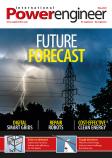Rachel Eyres details why energy players should be planning, testing and preparing for the mass adoption of EVs
With the UK government’s net zero targets providing the ambition to decarbonise all modes of domestic transport by 2050, this increased support for the mass adoption of electric vehicles (EVs) is great news for sustainability. There will be cleaner air, cities will be quieter and tens of thousands of new green jobs will be created as we build back greener. Yet ironically, if the EV uptake increases at the levels that are required to meet these targets (and this will require significant reduction in the price of vehicles before it can happen), then the UK risks problems with its electricity supply and it could run into a considerable infrastructure challenge.
If we don’t consider the impacts on the energy system early enough, it could lead to blackouts and areas in the UK could be left without electricity. To prevent this, we need to be mindful of the surcharge on the electricity grid that may come with the mass adoption of EVs.
Smart charging is the way forward
Without some proper planning we risk EVs all charging and demanding power at the same time, which would create problems for the power system. To make EVs a feasible and affordable option for our country, we will need to create a “smart” charging system that integrates with the existing system. This smart charging system will need to work with our current power networks and reduce the need for power distribution companies to implement costly infrastructure upgrades.
Smart charging will enable power companies to schedule and spread out charging so that it doesn’t all happen at the same time. It can also enable EVs to discharge the power from their batteries when the grid requires it, acting like mini virtual back-up generators. To take advantage of this new approach network companies will need to upgrade their management systems and operational processes to be able to support this new way of working and operating.
There are many technical options for the enablement of smart charging. Smart meters could form one of the foundations for this new approach. Smart meters are intelligent devices that were made to digitalise the measurement and billing of energy usage by suppliers and to provide visibility of network outages. By connecting these meters with smart chargers, retail energy suppliers will have full visibility, connectivity and control of charging, using the highly secure smart metering communications infrastructure. This will make sure that smart charging is compatible with our existing power system and safe from cyber-attacks.
The end-to-end smart charging system will have a lot of components; vehicles, people, billing systems and a power system, and the fact that the components are owned and operated by different companies and individuals will make it difficult to implement.
Why a coordinated approach is needed
Smart charging will allow power companies to reduce the need for costly network upgrades and new generation, potentially saving billions of pounds. The only way that the redesign can be successful is by implementing centrally managed targets, standards and projects. This will make sure that EVs are not only available to everyone, but also affordable and compatible with our way of living.
At the moment, many companies are coming together to test smart charging technology. Some of the newer companies in the energy sector are racing ahead and trialling new business models and technology propositions for consumers to prove that they work. Interesting partnerships are being formed between power distribution networks, energy suppliers, car manufacturers and technology vendors to better understand the new standards that smart charging will create and to test out the customer products. However, this is happening in an uncoordinated way which could create interoperability problems later on.
Rethinking the grid is a huge IoT and security challenge that will take some time to manage and maintain. Much like the smart meter programme, this will begin as a technical and operational trial that will grow into a project of end-to-end assurance and implementation.
Smart charging is still in the trialling process, so end-to-end solution assurance is a competitive advantage for those looking to make developments in the space.
Reaching the government’s net-zero target requires extensive planning and though smart charging will be a complex solution, it has the potential to be a hugely effective approach to the mass adoption EVs. So now is the time for energy players to plan, test and prepare.
Rachel Eyres is with Expleo UK
















